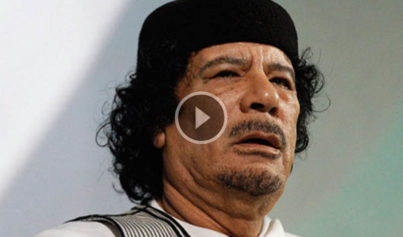On Monday March 25, many African Government offices, businesses and banks grind to a halt in order to commemorate Africa Day. In schools up and down the continent, little children are taught that heroic Africans liberated the continent from racist white colonial regimes and various events and parades are held to celebrate the occasion.
Colonialism in Africa is remembered as one of the worst crimes against humanity of the modern era. The exploitative economic system that underpinned colonialism remains alive and well today.
Africa’s liberation was from racist, colonial government. If this was to be the first stage of liberation, than the second stage must involve freeing Africa from the current white minority, who controls the majority of African land and resources.
True African liberation involves three stages: first, the redistribution of land and natural resources from the white minority to the Black majority; second, the rejection of the IMF and World Bank’s counter-developmental neo-liberal policies; and third, development of mineral refinement capacity.
Under Gaddafi, Libya was a shining example of how Africans can liberate themselves from Western exploitation and enrich its own people.
In 1967 Colonel Gaddafi inherited one of the poorest nations in Africa; however, by the time he was assassinated, Gaddafi had used the three stages of true African liberation to turn Libya into Africa’s wealthiest nation. Libya had the highest GDP per capita and life expectancy on the continent. Less people lived below the poverty line than in the Netherlands.
Gaddafi practiced the redistribution stage of liberation by nationalizing oil wealth to sustain progressive social welfare programs for all Libyans. Prior to Colonel Gaddafi, King Idris let Standard Oil essentially write Libya ‘s petroleum laws. Mr. Gaddafi put an end to all of that. Money from oil proceeds was deposited directly into every Libyan citizen’s bank account. Under Gaddafi’s rule, Libyans enjoyed not only free healthcare and free education, but also free electricity and interest-free loans.
Gaddafi’s greatest crime, in the eyes of NATO, was his desire to put the interests of local labor above foreign capital by adhering to the second stage of liberation and rejecting IMF and World Bank neo-liberal policies. In fact, in August 2011, President Obama confiscated $30 billion from Libya’s Central Bank, which Gaddafi had earmarked for the establishment of the African IMF and African Central Bank.
Gaddafi was assassinated by the West at a time when he was embarking on a continental mineral refinement program that would have dramatically shifted the economic balance between Africa and the West.
Gaddafi was willing to financially support any African governments that desired to undergo the redistribution stage of liberation.
Read more at globalresearch.ca


